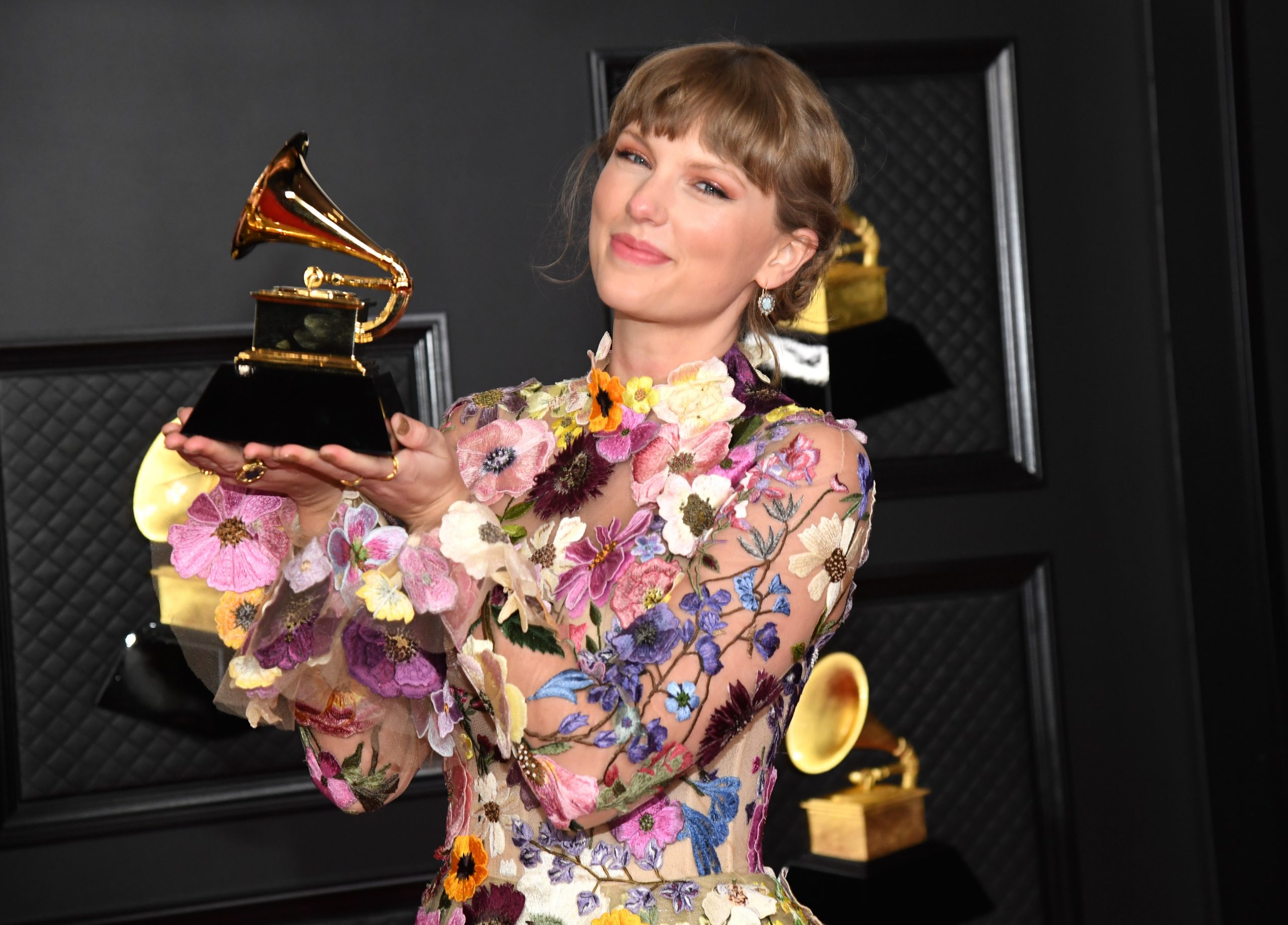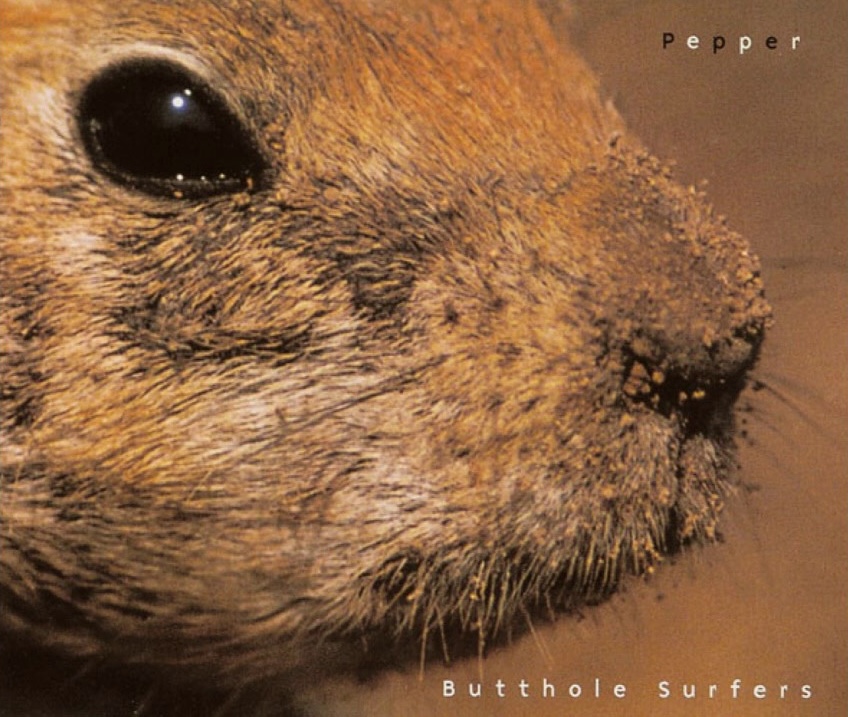Every year, the Grammys find new ways to be bizarre while retaining their essential, unmistakable Grammy-ness. Often, this manifests in the form of strange nominations and facepalm-worthy upsets and collaborative throwback performances pegged to nothing in particular. This year, though, the world thrust the weirdness upon the Recording Academy in the form of a global pandemic, and the Grammys responded by shaking up their telecast in refreshing fashion. The performances were mostly limited to currently relevant music. Given who was nominated, the winners weren't even all that egregious. It was one of the least objectionable Grammy nights in recent memory, yet that distinctive insufferable quality still faintly haunted the proceedings -- nearly four hours of them, and that's before you factor in all the afternoon festivities.
It's likely the Grammys would have been shaken up a bit in their 63rd year even without COVID-19 forcing the show out of the Staples Center and into a makeshift indoor-outdoor venue next door. Longtime producer Ken Ehrlich finally hung it up after last year's shitshow, clearing the way for 39-year-old Ben Winston, one of the minds behind The Late Late Show With James Corden, to nudge the Grammys past their longstanding boomer affectations and into an era of millennial hegemony. Coronavirus or not, the switch in leadership probably would have meant the end of your parents' faves showing up to pay tribute to your parents' other faves for no apparent reason. Indeed, beyond the In Memoriam segment, not one second of the music performed was released before the eligibility window (except the Black Pumas song, of course). On five interconnected stages beneath the rooftop ceremony, with a few remote and pre-taped performances woven in, Winston and his team presented something like a current portrait of popular music.
Yet how could these Grammys truly reflect the state of popular music today without the Weeknd? Somehow, the Recording Academy decided "Blinding Lights," one of the most successful singles in music history and a jam to boot, was not worthy of a nomination. Don't tell Daniel Craig, but neither was the song's excellent parent album, After Hours. Abel Tesfaye was naturally upset about this snub, so he raised a stink about the "corrupt" and secretive Grammy committees, cancelled his appearance, and ultimately decided to boycott the show for the rest of his life. His old pal Drake once again couldn't be bothered to attend. Halsey (snubbed) and Justin Bieber (a nominee and a winner) were nowhere to be found. Lady Gaga and Ariana Grande, whose "Rain On Me" won a Grammy in the afternoon, were also absent for the festivities. Beyoncé showed up to collect her trophies and reciprocate Megan Thee Stallion's worshipful affection but refused to perform.
imagine your hero looking at you like this ? pic.twitter.com/RdMqSbtdcG
— lucy ford ? (@lucyj_ford) March 15, 2021
Glaring omissions aside, the producers were largely successful in spotlighting, if not the music industry's best and brightest, its most popular. A large percentage of last year's biggest artists performed, acts whose songs were inescapable. Megan Thee Stallion, Dua Lipa, Lil Baby, Post Malone, Cardi B, Roddy Ricch, Doja Cat, Maren Morris, Billie Eilish, DaBaby, Harry Styles: All of these people are actually popular right now! A few of them made the most of their Grammy moment, too, particularly Lil Baby's protest march through the streets with Tamika Mallory and Killer Mike and the Cardi/Megan extravaganza that culminated in "WAP." Beyond the biggest hits, Haim bashed out "The Steps" with impressive fervor, and Mickey Guyton sang the hell out of "Black Like Me." When classic tunes did work their way into the show, they did so in appropriate capacity, to commemorate recently deceased legends. Bruno Mars and Anderson .Paak, who debuted their Silk Sonic single on the show, also delivered a searing Little Richard tribute, while Brandi Carlile's run through John Prine's "I Remember Everything" had seemingly my entire Twitter timeline choked up.
https://twitter.com/drewmagary/status/1371267490144206855
Less enjoyable was Taylor Swift's Stevie Nicks cosplay in a magical woodland cabin, a rather drowsy display compared to some of the evening's highlights. Still, few could dispute this pageantry's inclusion on a night that is about not music so much as the music industry. We can debate about whether it's one of Swift's better records (an argument I've waged with myself more than once), but no one could dispute folklore's status as a tentpole release in a pandemic year. The album spent eight weeks at #1, debuted three songs in the top 10, and was extremely on-trend. Plus, Swift has always been extremely down for the kind of politics the Weeknd has spent the past few months raging against. "We will never forget that you did this for us!" she announced to the academy while accepting her record-tying third Album Of The Year trophy, just two weeks after implying that Netflix should rid its programming of jokes at her expense because she once released a movie through their platform.
I looove Folklore but T*yl*r Sw*ft saying "We'll never forget that you did this for us" hits different with all of the political bs that goes on at the r*cord*ng acad ok I'm done!
— Rachel Brodsky (@RachelBrods) March 15, 2021
If the folklore win was not the most thrilling outcome, it at least made some kind of sense. There were enough of these rational moments that you could almost convince yourself the Grammys got it right this year. Megan Thee Stallion's victory parade through the rap categories, peaking with a Best New Artist win, was heartwarming. So was watching her hero-turned-peer Beyoncé become the most decorated performer in Grammy history. The Strokes, Burna Boy, Miranda Lambert, Kaytranada, John Prine, Bad Bunny, the Highwomen, Thundercat, Brittany Howard, "Rain On Me," Future Nostalgia: all solid picks, relatively speaking. It's relieving that Dr. Luke didn't win anything; it's amusing that Kanye West won Best Contemporary Christian Album. Fiona Apple should have been nominated for Album Of The Year, but hey, at least Fetch The Bolt Cutters won Best Alternative Music Album and "Shameika" was named Best Rock Performance. There was enough fodder to fuel the Grammy version of Stockholm Syndrome if you felt like surrendering to such a milquetoast fate.
Inevitably, there was also reason to snap out of that stupor and get angry. The In Memoriam montage always leaves out some important names, but it's outrageous that Power Trip's Riley Gale was omitted in the same year his band was nominated. Harry Styles walked away with a Grammy for "Watermelon Sugar," a stale Wheat Thin of a song that would need a lot more than a surprise Dev Hynes bass solo to be salvaged. Timely social message aside, find me one person outside the Recording Academy who believes H.E.R.'s "I Can't Breathe" was the Song Of The Year. It's hard to view a W for Nas in the Best Rap Album race as anything but a lifetime achievement award, especially when a deserving Freddie Gibbs was right there. And after going overboard to anoint Billie Eilish last year, did they really have to double down in a year when Eilish's material was so much less memorable? In the end, the academy could not restrain its old compulsions.
if someone like billie eilish truly doesn't want to win record of the year, can't she just ... not submit her song?
— jenn pelly (@jennpelly) March 15, 2021
How ironic that "Everything I Wanted," released just before last year's sweep of the big four Grammy categories, is about dreams coming true and turning out to be nightmares. Eilish -- who, lest we forget, is a genuine innovator and wunderkind -- was already embarrassed of her own outsized success last year. Now her song bemoaning the perils of fame has cemented her reputation as a Grammy cliché rather than a vanguard talent. She didn't do herself any favors by spending most of her Record Of The Year acceptance speech insisting that Megan Thee Stallion should have won, an echo of Adele's 2017 spiel about how Beyoncé's Lemonade towered over her own 25. (Beyoncé really did blaze a trail for Megan!) I understand the motivation to engage in this kind of performative modesty, but if you don't want to win a Grammy, don't submit your music. I'm sure Abel Tesfaye can explain this concept if you'd like further clarification.
Is it worth getting worked up about an awards show that was less objectionable than normal? One that was making obvious attempts to catch up with its moment with a more modern and inclusive slate of performers? One that adapted to the COVID era more gracefully than any other awards show thus far? Well, no; unless you have some personal stake, it's not worth getting worked up about an awards show at all. Better to step back and dispassionately consider how this year's ups and downs might affect the Grammys going forward. It will be interesting to see whether last night's ceremony convinces any of the artists who've turned up their noses at the Recording Academy to give the institution another chance, or if the late-breaking return to form further alienates them. Can the Grammys be saved? Is it time for a competing awards ceremony with a fresh perspective to arise? The answers to those questions got a lot muddier Sunday night, which I guess is a net win for an entity whose reputation has been so dour for so long. But really, what are we doing here if the best we can say is that the Grammys weren't nearly as bad as usual?






